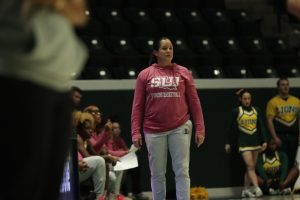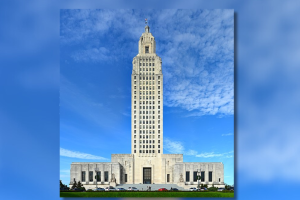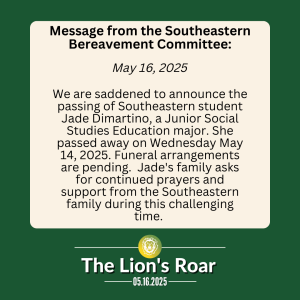‘Sip Smarter’ initiative created to reduce plastic straw waste
December 4, 2018
Americans use 500 million drinking straws daily according to the National Park Service, the equivalent of 183 billion straws a year. To counter this, Auxiliary Services launched its “Sip Smarter” campaign to reduce the amount of waste that these drinking conveniences contribute to landfills each year.
Director of Marketing and Strategic Initiatives for Auxiliary Services Robin Parker explained how the shift away from plastic straws will be accomplished.
Parker said, “We recently introduced the idea of reducing the use of straws by providing information on the impact of plastic on our environment to a few student groups in addition to placing informative flyers throughout our dining facilities with wording ‘Skip the Straw.’ This fall, we put out collateral advertising ‘Skip the Straw,’ and we consolidated all plastic straws at one beverage station. While straws are still currently available, we will move to having them available upon request in the next two semesters and then move to paper straws available on request.”
Auxiliary Services partnered with the Student Government Association and the Food Committee for the campaign, and they chose straws as the “first barrier of entry” towards eliminating disposable or single-use items.
“Straw reduction is part of a broader holistic strategy that addresses single-use plastics overall,” shared Parker. “The purpose of the ‘Sip Smarter’ campaign is to let consumers know Aramark is reducing straws and single-use plastics to align with our commitment to reduce waste before it happens and to help conserve the health of the world’s oceans.”
Parker shared other sustainability initiatives in progress.
“Dining Services will continue to be a partner to Southeastern on future and current sustainability initiatives,” said Parker. “Other initiatives Dining Services is working to launch include a food donation program and weigh the waste activity.”
Parker discussed the importance of such initiatives.
“We only have one Earth, and we all have a responsibility to protect it,” explained Parker. “The university, along with its business partners, will continue to find ways to make our campus and our environment more eco-friendly. We want to be a partner with the students on these deliverables and increase two-way communication with them in this process. We will work to increase awareness of our sustainability programs with the university Sustainability Office.”
Other initiatives include making sure oil is recycled by a local vendor, managing food waste more efficiently, and reducing plastic bottle purchases on campus.
To learn more about green initiatives at the university, contact the Sustainability Office at 985-549-3333 or sustainability@southeastern.edu.







